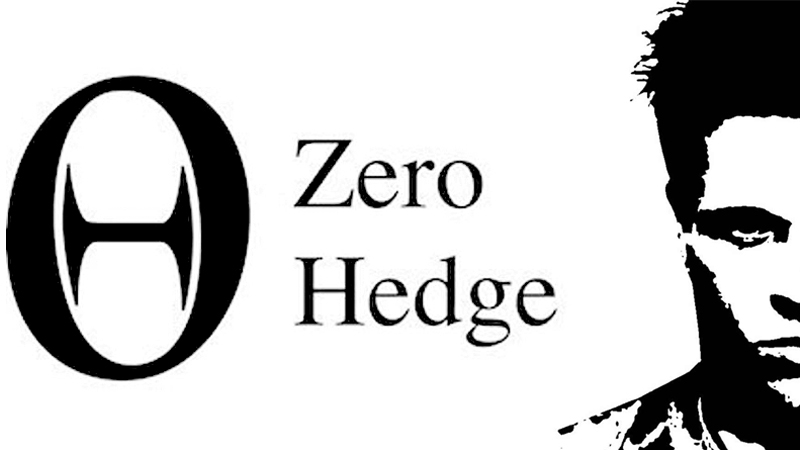In the fast-paced world of finance and market analysis, few platforms have stirred as much debate as ZeroHedge. Known for its bold headlines, bearish outlooks, and often controversial takes on global economics, it has become a go-to source for traders, investors, and skeptics alike. But what exactly is it, and why does it generate such strong reactions?
This article dives deep into the origins, influence, and controversies surrounding ZeroHedge, exploring why it remains a polarizing yet influential voice in financial media.
1. What Is ZeroHedge?
it is a financial blog founded in 2009, during the aftermath of the 2008 financial crisis. The site is known for its anonymous authorship—most articles are credited to “Tyler Durden,” a pseudonym borrowed from the Fight Club character.
The blog covers a wide range of topics, including:
- Stock market trends
- Central banking policies
- Geopolitical risks
- Cryptocurrency movements
- Economic collapse theories
ZeroHedge’s content often leans toward doom-and-gloom scenarios, warning of market crashes, inflation surges, and systemic financial risks.
2. Why Is ZeroHedge So Controversial?
it has faced criticism for several reasons:
A. Sensationalism & Fear-Mongering
Many accuse it of exaggerating risks to drive traffic. Headlines like “The Everything Bubble Is About to Burst” or “Central Banks Are Trapping the Economy” appeal to readers’ fears, sometimes without balanced analysis.
B. Anonymous Authors & Questionable Sources
Since its writers operate under pseudonyms, questions arise about credibility. Some speculate that hedge funds or market manipulators could be behind certain posts to sway sentiment.
C. Bans & Censorship
In 2020, it was temporarily banned from Twitter for violating policies on harassment. Google also demonetized the site, claiming it spread “dangerous content.”
D. Conspiracy Theories
The site has been linked to fringe theories, including COVID-19 misinformation and deep-state narratives, leading to accusations of promoting conspiracy-driven content.
Despite these controversies, it maintains a dedicated following, particularly among traders who value its contrarian perspectives.
3. ZeroHedge’s Influence on Markets
Whether loved or hated, it has real market impact:
- Meme Stock & Crypto Coverage: ZeroHedge frequently reports on volatile assets like GameStop, AMC, and Bitcoin, amplifying retail investor movements.
- Fed & Central Bank Criticism: The blog’s relentless scrutiny of the Federal Reserve and other central banks shapes public distrust in monetary policy.
- Early Warnings: Some ZeroHedge articles have accurately predicted market shifts, such as the 2020 liquidity crisis and inflation surges.
While not always correct, the blog’s ability to sway sentiment makes it a force in financial media.
4. Who Reads ZeroHedge?
ZeroHedge’s audience includes:
- Day traders & hedge fund analysts looking for alternative insights.
- Gold & Bitcoin enthusiasts who distrust traditional finance.
- Conspiracy theorists & libertarians skeptical of government narratives.
- Mainstream financial journalists who monitor it for contrarian views.
The site’s mix of hard data and speculative commentary attracts readers who feel mainstream media downplays economic risks.
5. The Future of ZeroHedge
As financial markets grow more volatile, ZeroHedge’s role may expand. However, its future depends on:
- Regulatory pressures: Will governments crack down on its content?
- Monetization challenges: Can it survive without major ad networks?
- Credibility: Will it balance skepticism with more rigorous analysis?
For now, ZeroHedge remains a lightning rod—simultaneously dismissed as fringe and respected for its unflinching critiques.
Conclusion: ZeroHedge – A Necessary Evil or Misinformation Hub?
ZeroHedge is a paradox—a platform that challenges mainstream narratives while often venturing into sensationalism. Its influence is undeniable, yet its credibility remains hotly debated.
For investors, the key is critical engagement: using ZeroHedge as one of many sources rather than the sole truth. In an era of information overload, discernment is essential—whether reading ZeroHedge or The Wall Street Journal.
FAQs About ZeroHedge
1. Is ZeroHedge a reliable source for financial news?
ZeroHedge provides unique insights but should be cross-checked with mainstream sources due to its sensationalist tendencies.
2. Why was ZeroHedge banned from Twitter?
Twitter suspended ZeroHedge in 2020 for violating its policies on harassment and misinformation.
3. Who owns ZeroHedge?
The ownership is unclear, as the site operates under pseudonyms. Some speculate it has ties to financial industry insiders.
4. Does ZeroHedge manipulate markets?
While it influences sentiment, there’s no direct evidence of market manipulation. However, its dramatic headlines can amplify volatility.
5. Can ZeroHedge predict economic crashes?
It has flagged some risks early, but its doom-laden forecasts aren’t always accurate. Investors should use it cautiously.



